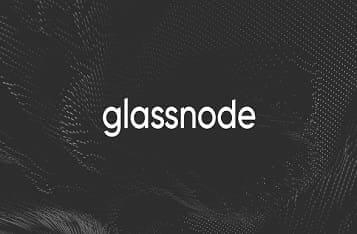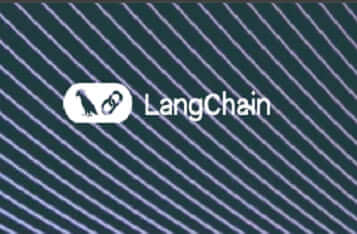Decentralized Finance (DeFi)
Decentralized Finance was one of the hottest emerging topics in the crypto world in 2019. But what is DeFi really?
What is DeFi in a nutshell?
DeFi stands for decentralized finance.
DeFi as a concept is to be able to offer almost all the financial services available with legacy and centralized institutions, typically banks, but on the blockchain. Whatever traditional services financial institutions provide can be expected to be offered through DeFi. In short, Defi is blockchain-based financial services that traditional financial services map into, creating new services or derivatives stemming from blockchain's unique features.
Although we have had concepts like distributed computing and decentralized computing for decades, DeFi is in fact a new concept or an expansion of the application scope of blockchain as infrastructure.

Key features of DeFi
As mentioned above, decentralized finance aims to offer financial services while leveraging the key elements and functions of a blockchain, to create a more open and transparent financial system.
As such, the components of DeFi include smart contracts, protocols, decentralized applications, digital currencies, and more. A typical version of DeFi is bitcoin and stablecoins like USDT, Dai, and Paxos Standard.
The key advantages or new features of DeFi in the financial services space is the decentralized aspect of removing legacy "trusted third parties" and keeping a transparent and tamper-proof ledger.
(1) Transitioning Trust in Intermediaries to Machine Trust
Removing "trusted third parties" is one of the vital features in blockchain, as it creates a trustless system, one where we know both parties know that the other actually holds the assets to transact while not needing to know the other true identity. Relying on the blockchain's features to create trust transitions the traditional trust placed in credit institutions like governments and banks into machine trust.
Trust and credit are perhaps the most important elements in financial transactions and industry. Trust and credit are key to the modern monetary and financial systems, and trust traditionally comes by verifying all transactions through a Central Bank or financial institution who are the intermediaries or "trusted third parties". Blockchain removes the necessity for "trust third parties" and for this reason is extremely disruptive for traditional financial institutions as lots of their revenue simply comes from their roles as an intermediary agency. Central banks and credit agencies have enjoyed a monopoly in this role and will continue to fight vigorously to protect this monopoly
(2) Smart Contracts
A smart contract is a general method of removing third parties as it relies on undeniable code logic on the blockchain network to trigger its execution instead of human intervention. DeFi typically benefits from smart contracts.
Contracts and agreements involved in DeFi services are governed by smart contracts. A smart contract is a self-executing contract where the terms and conditions are defined and enforced through automation and enacted autonomously and efficiently on the blockchain.
Automation: Contractual agreements are pretty complicated; this is what creates the need for lawyers, brokers, and escrows. All these entities do a lot of good, but in the long term, they cost a lot more and are sometimes not necessary. The use of smart contracts simplifies the process, clearing out all the many people needed to enforce a contract. This brings many benefits like speed, clarity, and precision with each contract.
Cost-efficient: On a rough estimate, it costs between $150 - $1000 per hour to hire a lawyer to look at your contract and work with you. (source?) This is quite expensive and might not be cost-efficient in the case of a business setting. Smart contracts are free as opposed to regular deals, and they also execute immediately once the terms that bind the contract has been fulfilled.
Autonomy: Smart contracts are self-sufficient; once they are entered into, the parties involved are not subject to external authority, only to the terms they agreed on. This feature also makes them free of manipulation, from either party, increasing the safety and security of contractual agreements.
Ever since the introduction of blockchain technology, smart contracts have been the highest form of its application. Added with its autonomous power, speed, and transparency, the potential for smart contracts to redefine the industry and the financial sector is limitless.
Smart contracts ultimately streamline traditional business logic by mapping traditional financial services and business conditions into the composition of smart contracts, as well as adding in external data or services, and (or) interoperation of other blockchains like identity and other verifications.
(3) Security, Privacy and transparency
These advantages also stem from the essential advantages of blockchain. For the unfamiliar, blockchain is a nascent technology that was originally created to support Bitcoin and cryptocurrency. In the simplest terms, a blockchain can be described as a data structure that holds transactional records while ensuring security, transparency, and decentralization. As its name suggests it is a chain of blocks—records of information that cannot be altered or controlled by any single authority.
As DeFi protocols run on a blockchain they are protected, by the above features.
Typical DeFi projects
Although the majority of DeFi applications run on the Ethereum blockchain, the pioneer for DeFi is no doubt Bitcoin.
In bitcoin's white paper, one of the main goals expressed is "removing trusted third parties" stating that "a purely peer-to-peer version of electronic cash would allow online payments to be sent directly from one party to another without going through a financial institution". Bitcoin is essentially a way to a new monetary and financial system. In the post "Blockchain Brings Monetary and Financial Freedom", it has introduced three internal factors of money: money form, money issuance, and the flow of money. Bitcoin is a cryptographic form of money, a PoW based money issuance standard, and a completely new money movement system. As money issuance is at the core of the monetary system beyond the financial system, so it is not part of DeFi. But money movement is an essential part of the financial system, and thus bitcoin is the original DeFi. Bitcoin opened the door to effectively challenge the monopoly of the central banks over monetary and financial systems.
Likewise, Ethereum is a platform for DeFi project, as well as some other public blockchains like Algorand, EOS.
In its narrow sense, DeFi refers to financial applications on blockchains. Below are some typical DeFi projects in summary:
(1) MakerDao
The MakerDao project is the contemporary success story for decentralized finance (DeFi). The project went live in December 2017, with DAI as the USD stablecoin and MKR functioning as the governance token. In the world of decentralized finance, MakerDAO is by far the most popular application running on Ethereum and has been steadily increasing traction since its launch.
(2) Compound
Compound is a typical blockchain-based borrowing and lending DeFi project.
Profound impact of DeFi
DeFi is essentially financial services mapped on blockchains. In other words, DeFi is the service set that would potential and gradually replace traditional financial institutions like banks. The war between traditional financial institutions and DeFi is inevitable. It will break the monopoly of traditional financial institutions and lower the cost of traditional financial service in some sense, relieve us from "financial salves", leading to more financial inclusion, especially for the unbanked, and to more fairness and equality.
Authors:
Kun Hu, CEO of Blockchain.News
Editor: Lucas Cacioli
Image source: Shutterstock






